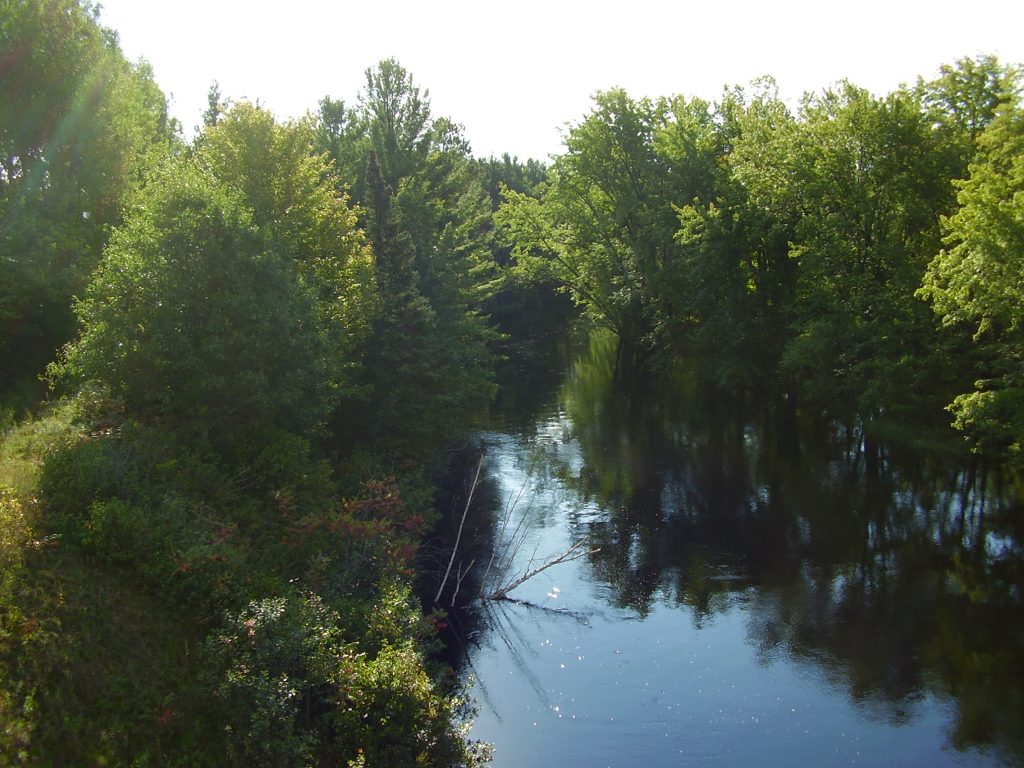Wisconsin Water Quality Rule Finalized Despite Republican Objections
Rule by Evers administration comes after years of wrangling over 2015 EPA regulation.

Pelican River. Photo by LaurentianShield, (CC BY-SA 4.0), via Wikimedia Commons
A newly published rule aimed at protecting the state’s waterways is the latest outcome of an ongoing power struggle between Democratic Gov. Tony Evers and the Republican-controlled Legislature over the authority of state agencies.
The rule, which aims to protect high-quality lakes and rivers from significant pollution, will bring state regulations in line with requirements under the federal Clean Water Act.
The U.S. Environmental Protection Agency in 2015 updated its antidegradation regulations. State regulators say the changes provide a clearer process for reviewing whether new or increased wastewater and stormwater discharges would have a significant effect on water quality.
But for more than a decade, Wisconsin has not implemented the new regulations, as lawmakers and interest groups wrangled over its interpretation. Most recently, last month Republicans requested changes to the rule in a 4-2 vote along party lines by the Assembly environment committee.
Instead, on Monday the Legislative Reference Bureau published the rule in the administrative register. It takes effect on July 1.
The committee’s chair, Rep. Joy Goeben, R-Hobart, said in a statement that Evers is acting “without legislative oversight or accountability.”
“Representative government has been taken away and we now have rule by king,” Goeben said. “We don’t want a king and the current path forward is dangerous.”
Evers’ action comes after a July Supreme Court ruling scaled back the Legislature’s ability to indefinitely block agency rules. In August, Evers told agencies not to wait for any legislative committees to sign off on 27 rules before publishing them, including the antidegradation rule that had been held up for years.
Evan Feinauer, staff attorney for Clean Wisconsin, disputed the GOP’s characterization that the Supreme Court decision removed all oversight. The Legislature controls the budget-writing process, tells agencies what kind of rules to write and passes changes to state laws, Feinauer said. But he argued that Wisconsin can’t have “legislative chokepoints” that stop it from meeting federal requirements.
The rule will allow the state “to protect our waters and make sure they’re clean for future generations, rather than things getting caught up in silly interest group politics in the Legislature,” Feinauer said.
But the state’s largest business group argued the ruling prevents the Legislature from holding unelected bureaucrats accountable. Scott Manley, executive vice president of government relations for Wisconsin Manufacturers and Commerce, said it allows agencies to pass regulations that hold the same force as law without legislative oversight. He called that unconstitutional.
“That’s terrible from a representative government standpoint, and it’s a fiction to think that the people’s representatives are going to get any relief from that by having the Legislature pass a bill that the governor will never sign into law,” Manley said.
Under the antidegradation rule, the DNR would only approve new or increased discharges that significantly lower water quality when a review shows it’s necessary for important social or economic development. It would also require permit holders to conduct an alternative analysis to show they will use practices to limit harm to water quality if possible.
WMC had requested current law remain the same as it relates to exemptions from what the group called burdensome reviews, asking that applicants receive a streamlined review more than once. In testimony, the DNR said it has offered streamlined review to those proposing insignificant discharges, but the EPA found the state’s previous threshold for qualifying applicants was “not sufficiently protective of water quality.”
Industry and farm groups also asked for explicit exemptions for concentrated animal feeding operations, or CAFOs. In testimony, the Wisconsin Farm Bureau Federation said the change will create “lengthy and expensive reviews, even when existing permits already safeguard water quality.”
WMC has intervened in a lawsuit filed by Evers against Republican leaders over the ongoing power struggle. In the future, Feinauer said environmental advocates hope the DNR will pursue rules on other issues such as lead, PFAS and nitrates.
Wisconsin water quality rule finalized amid feud between Evers, GOP leaders was originally published by Wisconsin Public Radio.
If you think stories like this are important, become a member of Urban Milwaukee and help support real, independent journalism. Plus you get some cool added benefits.





















